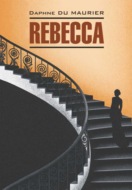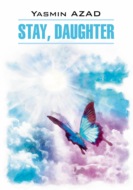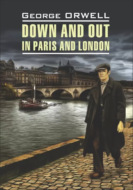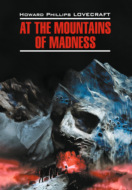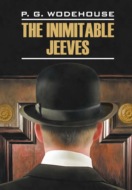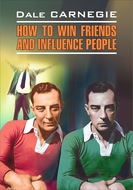Kitobni o'qish: «Lolita / Лолита. Книга для чтения на английском языке»
© Каро, 2019
Part One
1
Lolita, light of my life, fire of my loins. My sin, my soul. Lo-lee-ta: the tip of the tongue taking a trip of three steps down the palate to tap, at three, on the teeth. Lo. Lee. Ta.
She was Lo, plain Lo, in the morning, standing four feet ten in one sock. She was Lola in slacks. She was Dolly at school. She was Dolores on the dotted line1. But in my arms she was always Lolita.
Did she have a precursor? She did, indeed she did. In point of fact, there might have been no Lolita at all had I not loved, one summer, a certain initial girl-child. In a princedom by the sea. Oh when? About as many years before Lolita was born as my age was that summer. You can always count on a murderer for a fancy prose style.
Ladies and gentlemen of the jury, exhibit number one is what the seraphs, the misinformed, simple, noble-winged seraphs, envied. Look at this tangle of thorns.
2
I was born in 1910, in Paris. My father was a gentle, easy-going person, a salad of racial genes: a Swiss citizen, of mixed French and Austrian descent, with a dash of the Danube in his veins. I am going to pass around in a minute some lovely, glossy-blue picture-postcards. He owned a luxurious hotel on the Riviera. His father and two grandfathers had sold wine, jewels and silk, respectively. At thirty he married an English girl, daughter of Jerome Dunn, the alpinist, and grand-daughter of two Dorset parsons, experts in obscure subjects – palacopedology and Aeolian harps2, respectively. My very photogenic mother died in a freak accident (picnic, lightning) when I was three, and, save for3 a pocket of warmth in the darkest past, nothing of her subsists within the hollows and dells of memory, over which, if you can still stand my style (I am writing under observation), the sun of my infancy had set: surely, you all know those redolent remnants of day suspended, with the midges, about some hedge in bloom or suddenly entered and traversed by the rambler, at the bottom of a hill, in the summer dusk; a furry warmth, golden midges.
My mother’s elder sister, Sybil, whom a cousin of my father’s had married and then neglected, served in my immediate family as a kind of unpaid governess and housekeeper. Somebody told me later that she had been in love with my father, and that he had lightheartedly taken advantage of it one rainy day and forgotten it by the time the weather cleared. I was extremely fond of her, despite the rigidity – the fatal rigidity – of some of her rules. Perhaps she wanted to make of me, in the fullness of time, a better widower than my father. Aunt Sybil had pink-rimmed azure eyes and a waxen complexion. She wrote poetry. She was poetically superstitious. She said she knew she would die soon after my sixteenth birthday, and did. Her husband, a great traveller in perfumes, spent most of his time in America, where eventually he founded a firm and acquired a bit of real estate.
I grew, a happy, healthy child in a bright world of illustrated books, clean sand, orange trees, friendly dogs, sea vistas and smiling faces. Around me the splendid Hotel Mirana revolved as a kind of private universe, a whitewashed cosmos within the blue greater one that blazed outside. From the aproned pot-scrubber to the flannelled potentate, everybody liked me, everybody petted me. Elderly American ladies leaning on their canes listed toward me like towers of Pisa. Ruined Russian princesses who could not pay my father bought me expensive bonbons. He, mon cher petit papa4, took me out boating and biking, taught me to swim and dive and water-ski, read to me Don Quixote and Les Miserables5, and I adored and respected him and felt glad for him whenever I over-heard the servants discuss his various lady-friends, beautiful and kind beings who made much of me and cooed and shed precious tears over my cheerful motherlessness.
I attended an English day school a few miles from home, and there I played rackets and fives6, and got excellent marks, and was on perfect terms with schoolmates and teachers alike. The only definite sexual events that I can remember as having occurred before my thirteenth birthday (that is, before I first saw my little Annabel) were: a solemn, decorous and purely theoretical talk about pubertal surprises in the rose garden of the school with an American kid, the son of a then celebrated motion-picture actress whom he seldom saw in the three-dimensional world; and some interesting reactions on the part of my organism to certain photographs, pearl and umbra, with infinitely soft partings, in Pichon’s sumptuous La Beauté Humaine7 that I had filched from under a mountain of marble-bound Graphics8 in the hotel library. Later, in his delightful debonair manner, my father gave me all the information he thought I needed about sex; this was just before sending me, in the autumn of 1923, to a lycée9 in Lyon (where we were to spend three winters); but alas, in the summer of that year, he was touring Italy with Mme10 de R. and her daughter, and I had nobody to complain to, nobody to consult.
3
Annabel was, like the writer, of mixed parentage: half English, half-Dutch, in her case. I remember her features far less distinctly today than I did a few years ago, before I knew Lolita. There are two kinds of visual memory: one when you skillfully recreate an image in the laboratory of your mind, with your eyes open (and then I see Annabel in such general terms as: ‘honey-coloured skin’, ‘thin arms’, ‘brown bobbed hair’, ‘long lashes’, ‘big bright mouth’); and the other when you instantly evoke, with shut eyes, on the dark innerside of your eyelids, the objective, absolutely optical replica of a beloved face, a little ghost in natural colours (and this is how I see Lolita).
Let me therefore primly limit myself, in describing Annabel, to saying she was a lovely child a few months my junior. Her parents were old friends of my aunt’s, and as stuffy as she. They had rented a villa not far from Hotel Mirana. Bald brown Mr. Leigh and fat, powdered Mrs. Leigh (born Vanessa van Ness). How I loathed them! At first, Annabel and I talked of peripheral affairs. She kept lifting handfuls of fine sand and letting it pour through her fingers. Our brains were tuned the way those of intelligent European pre-adolescents were in our day and set, and I doubt if much individual genius should be assigned to our interest in the plurality of inhabited worlds, competitive tennis, infinity, solipsism and so on. The softness and fragility of baby animals caused us the same intense pain. She wanted to be a nurse in some famished Asiatic country; I wanted to be a famous spy.
All at once we were madly, clumsily, shamelessly, agonizingly in love with each other; hopelessly, I should add, because that frenzy of mutual possession might have been assuaged only by our actually imbibing and assimilating every particle of each other’s soul and flesh; but there we were, unable even to mate as slum children would have so easily found an opportunity to do. After one wild attempt we made to meet at night in her garden (of which more later), the only privacy we were allowed was to be out of earshot but not out of sight of the populous part of the plage. There, on the soft sand, a few feet away from our elders, we would sprawl all morning, in a petrified paroxysm of desire, and take advantage of every blessed quirk in space and time to touch each other: her hand, half-hidden in the sand, would creep toward me, its slender brown fingers sleepwalking nearer and nearer; then, her opalescent knee would start on a long cautious journey; sometimes a chance rampart built by younger children granted us sufficient concealment to graze each other’s salty lips; these incomplete contacts drove our healthy and inexperienced young bodies to such a state of exasperation that not even the cool blue water, under which we still clawed at each other, could bring relief.
Among some treasures I lost during the wanderings of my adult years, there was a snapshot taken by my aunt which showed Annabel, her parents and the staid, elderly, lame gentleman, a Dr. Cooper, who that same summer courted my aunt, grouped around a table in a sidewalk café. Annabel did not come out well, caught as she was in the act of bending over her chocolat glacé11, and her thin bare shoulders and the parting in her hair were about all that could be identified (as I remember that picture) amid the sunny blur into which her lost loveliness graded; but I, sitting somewhat apart from the rest, came out with a kind of dramatic conspicuousness: a moody, beetle-browed boy in a dark sport shirt and well-tailored white shorts, his legs crossed, sitting in profile, looking away. That photograph was taken on the last day of our fatal summer and just a few minutes before we made our second and final attempt to thwart fate. Under the flimsiest of pretexts (this was our very last chance, and nothing really mattered) we escaped from the café to the beach, and found a desolate stretch of sand, and there, in the violet shadow of some red rocks forming a kind of cave, had a brief session of avid caresses, with somebody’s lost pair of sunglasses for only witness. I was on my knees, and on the point of possessing my darling, when two bearded bathers, the old man of the sea and his brother, came out of the sea with exclamations of ribald encouragement, and four months later she died of typhus in Corfu.
4
I leaf again and again through these miserable memories, and keep asking myself, was it then, in the glitter of that remote summer, that the rift in my life began; or was my excessive desire for that child only the first evidence of an inherent singularity? When I try to analyse my own cravings, motives, actions and so forth, I surrender to a sort of retrospective imagination which feeds the analytic faculty with boundless alternatives and which causes each visualized route to fork and re-fork without end in the maddeningly complex prospect of my past. I am convinced, however, that in a certain magic and fateful way Lolita began with Annabel.
I also know that the shock of Annabel’s death consolidated the frustration of that nightmare summer, made of it a permanent obstacle to any further romance throughout the cold years of my youth. The spiritual and the physical had been blended in us with a perfection that must remain incomprehensible to the matter-of-fact, crude, standard-brained youngsters of today. Long after her death I felt her thoughts floating through mine. Long before we met we had had the same dreams. We compared notes. We found strange affinities. The same June of the same year (1919) a stray canary had fluttered into her house and mine, in two widely separated countries. Oh, Lolita, had you loved me thus!
I have reserved for the conclusion of my ‘Annabel’ phase the account of our unsuccessful first tryst. One night, she managed to deceive the vicious vigilance of her family. In a nervous and slender-leaved mimosa grove at the back of their villa we found a perch on the ruins of a low stone wall. Through the darkness and the tender trees we could see the arabesques of lighted windows which, touched up by the coloured inks of sensitive memory, appear to me now like playing cards – presumably because a bridge game was keeping the enemy busy. She trembled and twitched as I kissed the corner of her parted lips and the hot lobe of her ear. A cluster of stars palely glowed above us, between the silhouettes of long thin leaves; that vibrant sky seemed as naked as she was under her light frock. I saw her face in the sky, strangely distinct, as if it emitted a faint radiance of its own. Her legs, her lovely live legs, were not too close together, and when my hand located what it sought, a dreamy and eerie expression, half-pleasure, half-pain, came over those childish features. She sat a little higher than I, and whenever in her solitary ecstasy she was led to kiss me, her head would bend with a sleepy, soft, drooping movement that was almost woeful, and her bare knees caught and compressed my wrist, and slackened again; and her quivering mouth, distorted by the acridity of some mysterious potion, with a sibilant intake of breath came near to my face. She would try to relieve the pain of love by first roughly rubbing her dry lips against mine; then my darling would draw away with a nervous toss of her hair, and then again come darkly near and let me feed on her open mouth, while with a generosity that was ready to offer her everything, my heart, my throat, my entrails, I gave her to hold in her awkward fist the sceptre of my passion.
I recall the scent of some kind of toilet powder – I believe she stole it from her mother’s Spanish maid – a sweetish, lowly, musky perfume. It mingled with her own biscuity odour, and my senses were suddenly filled to the brim; a sudden commotion in a nearby bush prevented them from overflowing – and as we drew away from each other, and with aching veins attended to what was probably a prowling cat, there came from the house her mother’s voice calling her, with a rising frantic note – and Dr. Cooper ponderously limped out into the garden. But that mimosa grove – the haze of stars, the tingle, the flame, the honey-dew, and the ache remained with me, and that little girl with her seaside limbs and ardent tongue haunted me ever since – until at last, twenty-four years later, I broke her spell by incarnating her in another.
5
The days of my youth, as I look back on them, seem to fly away from me in a flurry of pale repetitive scraps like those morning snowstorms of used tissue paper that a train passenger sees whirling in the wake of the observation car12. In my sanitary relations with women I was practical, ironical and brisk. While a college student, in London and Paris, paid ladies sufficed me. My studies were meticulous and intense, although not particularly fruitful. At first, I planned to take a degree in psychiatry as many manqué13 talents do; but I was even more manqué than that; a peculiar exhaustion, I am so oppressed, doctor, set in; and I switched to English literature, where so many frustrated poets end as pipesmoking teachers in tweeds. Paris suited me. I discussed Soviet movies with expatriates. I sat with uranists in the Deux Magots. I published tortuous essays in obscure journals. I composed pastiches:
… Fräulein von Kulp
may turn, her hand upon the door;
I will not follow her. Nor Fresca. Nor
that Gull.
A paper of mine entitled ‘The Proustian theme in a letter from Keats to Benjamin Bailey’ was chuckled over by the six or seven scholars who read it. I launched upon an ‘Histoire abrégée de la poesie anglaise14’ for a prominent publishing firm, and then started to compile that manual of French literature for English-speaking students (with comparisons drawn from English writers) which was to occupy me throughout the ‘forties – and the last volume of which was almost ready for press by the time of my arrest.
I found a job – teaching English to a group of adults in Auteuil. Then a school for boys employed me for a couple of winters. Now and then I took advantage of the acquaintances I had formed among social workers and psychotherapists to visit in their company various institutions, such as orphanages and reform schools15, where pale pubescent girls with matted eyelashes could be stared at in perfect impunity remindful of that granted one in dreams.
Now I wish to introduce the following idea. Between the age limits of nine and fourteen there occur maidens who, to certain bewitched travellers, twice or many times older than they, reveal their true nature which is not human, but nymphic (that is, demoniac); and these chosen creatures I propose to designate as ‘nymphets’.
It will be marked that I substitute time terms for spatial ones. In fact, I would have the reader see ‘nine’ and ‘fourteen’ as the boundaries – the mirrory beaches and rosy rocks – of an enchanted island haunted by those nymphets of mine and surrounded by a vast, misty sea. Between those age limits, are all girl-children nymphets? Of course not. Otherwise, we who are in the know, we lone voyagers, we nympholepts, would have long gone insane. Neither are good looks any criterion; and vulgarity, or at least what a given community terms so, does not necessarily impair certain mysterious characteristics, the fey grace, the elusive, shifty, soul-shattering, insidious charm that separates the nymphet from such coevals of hers as are incomparably more dependent on the spatial world of synchronous phenomena than on that intangible island of entranced time where Lolita plays with her likes. Within the same age limits the number of true nymphets is strikingly inferior to that of provisionally plain, or just nice, or ‘cute’, or even ‘sweet’ and ‘attractive’, ordinary, plumpish, formless, cold-skinned, essentially human little girls, with tummies and pigtails, who may or may not turn into adults of great beauty (look at the ugly dumplings in black stockings and white hats that are metamorphosed into stunning stars of the screen). A normal man given a group photograph of school girls or Girl Scouts and asked to point out the comeliest one will not necessarily choose the nymphet among them. You have to be an artist and a madman, a creature of infinite melancholy, with a bubble of hot poison in your loins and a super-voluptuous flame permanently aglow in your subtle spine (oh, how you have to cringe and hide!), in order to discern at once, by ineffable signs – the slightly feline outline of a cheekbone, the slenderness of a downy limb, and other indices which despair and shame and tears of tenderness forbid me to tabulate – the little deadly demon among the wholesome children; she stands unrecognized by them and unconscious herself of her fantastic power.
Furthermore, since the idea of time plays such a magic part in the matter, the student should not be surprised to learn that there must be a gap of several years, never less than ten I should say, generally thirty or forty, and as many as ninety in a few known cases, between maiden and man to enable the latter to come under a nymphet’s spell. It is a question of focal adjustment, of a certain distance that the inner eye thrills to surmount, and a certain contrast that the mind perceives with a gasp of perverse delight. When I was a child and she was a child, my little Annabel was no nymphet to me; I was her equal, a faunlet in my own right, on that same enchanted island of time; but today, in September 1952, after twenty-nine years have elapsed, I think I can distinguish in her the initial fateful elf in my life. We loved each other with a premature love, marked by a fierceness that so often destroys adult lives. I was a strong lad and survived; but the poison was in the wound, and the wound remained ever open, and soon I found myself maturing amid a civilization which allows a man of twenty-five to court a girl of sixteen but not a girl of twelve.
No wonder, then, that my adult life during the European period of my existence proved monstrously twofold. Overtly, I had so-called normal relationships with a number of terrestrial women having pumpkins or pears for breasts; inside, I was consumed by a hell furnace of localized lust for every passing nymphet whom as a law-abiding poltroon I never dared approach. The human females I was allowed to wield were but palliative agents. I am ready to believe that the sensations I derived from natural fornication were much the same as those known to normal big males consorting with their normal big mates in that routine rhythm which shakes the world. The trouble was that those gentlemen had not, and I had, caught glimpses of an incomparably more poignant bliss. The dimmest of my pollutive dreams was a thousand times more dazzling than all the adultery the most virile writer of genius or the most talented impotent might imagine. My world was split. I was aware of not one but two sexes, neither of which was mine; both would be termed female by the anatomist. But to me, through the prism of my senses, ‘they were as different as mist and mast16’. All this I rationalize now. In my twenties and early thirties, I did not understand my throes quite so clearly. While my body knew what it craved for, my mind rejected my body’s every plea. One moment I was ashamed and frightened, another recklessly optimistic. Taboos strangulated me. Psycho-analysts wooed me with pseudoliberations of pseudolibidoes. The fact that to me the only objects of amorous tremor were sisters of Annabel’s, her handmaids and girl-pages, appeared to me at times as a forerunner of insanity. At other times I would tell myself that it was all a question of attitude, that there was really nothing wrong in being moved to distraction by girl-children. Let me remind my reader that in England, with the passage of the Children and Young Persons Act in 1933, the term ‘girl-child’ is defined as ‘a girl who is over eight but under fourteen years’ (after that from fourteen to seventeen, the statutory definition is ‘young person’). In Massachusetts, US, on the other hand, a ‘wayward child’ is, technically, one ‘between seven mid seventeen years of age’ (who, moreover, habitually associates with vicious or immoral persons). Hugh Broughton, a writer of controversy in the reign of James I, has proved that Rahab was a harlot at ten years of age. This is all very interesting, and I dare say you see me already frothing at the mouth in a fit; but no, I am not; I am just winking happy thoughts into a little tiddle cup. Here are some more pictures. Here is Virgil who could the nymphet sing in single tone, but probably preferred a lad’s peritoneum. Here are two of King Akhnaten’s and Queen Nefertiti’s pre-nubile Nile daughters (that royal couple had a litter of six), wearing nothing but many necklaces of bright beads, relaxed on millions, intact after three thousand years, with their soft brown puppy bodies, cropped hair and long ebony eyes. Here are some brides of ten compelled to seat themselves on the fascinum, the virile ivory in the temples of classical scholarship. Marriage and cohabitation before the age of puberty are still not uncommon in certain East Indian provinces. Lepcha old men of eighty copulate with girls of eight, and nobody minds. After all, Dante fell madly in love with his Beatrice when she was nine, a sparkling girleen, painted and lovely, and bejewelled, in a crimson frock, and this was in 1274, in Florence, at a private feast in the merry month of May. And when Petrarch fell madly in love with his Laureen, she was a fair-haired nymphet of twelve running in the wind, in the pollen and dust, a flower in flight, in the beautiful plain as descried from the hills of Vaucluse.
But let us be prim and civilized. Humbert Humbert tried hard to be good. Really and truly, he did. He had the utmost respect for ordinary children, with their purity and vulnerability, and under no circumstances would he have interfered with the innocence of a child, if there was the least risk of a row. But how his heart beat when, among the innocent throng, he espied a demon child, ‘enfant charmante et fourbe17’, dim eyes, bright lips, ten years in jail if you only show her you are looking at her. So life went. Humbert was perfectly capable of intercourse with Eve, but it was Lilith he longed for. The bud-stage of breast development appears early (10.7 years) in the sequence of somatic changes accompanying pubescence. And the next maturational item available is the first appearance of pigmented pubic hair (11.2 years). My little cup brims with tiddles.
A shipwreck. An atoll. Alone with a drowned passenger’s shivering child. Darling, this is only a game! How marvellous were my fancied adventures as I sat on a hard park bench pretending to be immersed in a trembling book. Around the quiet scholar, nymphets played freely, as if he were a familiar statue or part of an old tree’s shadow and sheen. Once a perfect little beauty in a tartan frock, with a clatter, put her heavily armed foot near me upon the bench to dip her slim bare arms into me and tighten the strap of her roller skate, and I dissolved in the sun, with my book for fig leaf, as her auburn ringlets fell all over her skinned knee, and the shadow of leaves I shared pulsated and melted on her radiant limb next to my chameleonic cheek. Another time a red-haired school girl hung over me in the métro18, and a revelation of axillary russet I obtained remained in my blood for weeks. I could list a great number of these one-sided diminutive romances. Some of them ended in a rich flavour of hell. It happened for instance that from my balcony I would notice a lighted window across the street and what looked like a nymphet in the act of undressing before a co-operative mirror. Thus isolated, thus removed, the vision acquired an especially keen charm that made me race with all speed toward my lone gratification. But abruptly, fiendishly, the tender pattern of nudity I had adored would be transformed into the disgusting lamp-lit bare arm of a man in his underclothes reading his paper by the open window, in the hot, damp, hopeless summer night.
Rope-skipping, hopscotch. That old woman in black who sat down next to me on my bench, on my rack of joy (a nymphet was groping under me for a lost marble), and asked if I had stomach-ache, the insolent hag. Ah, leave me alone in my pubescent park, in my mossy garden. Let them play around me for ever. Never grow up.

